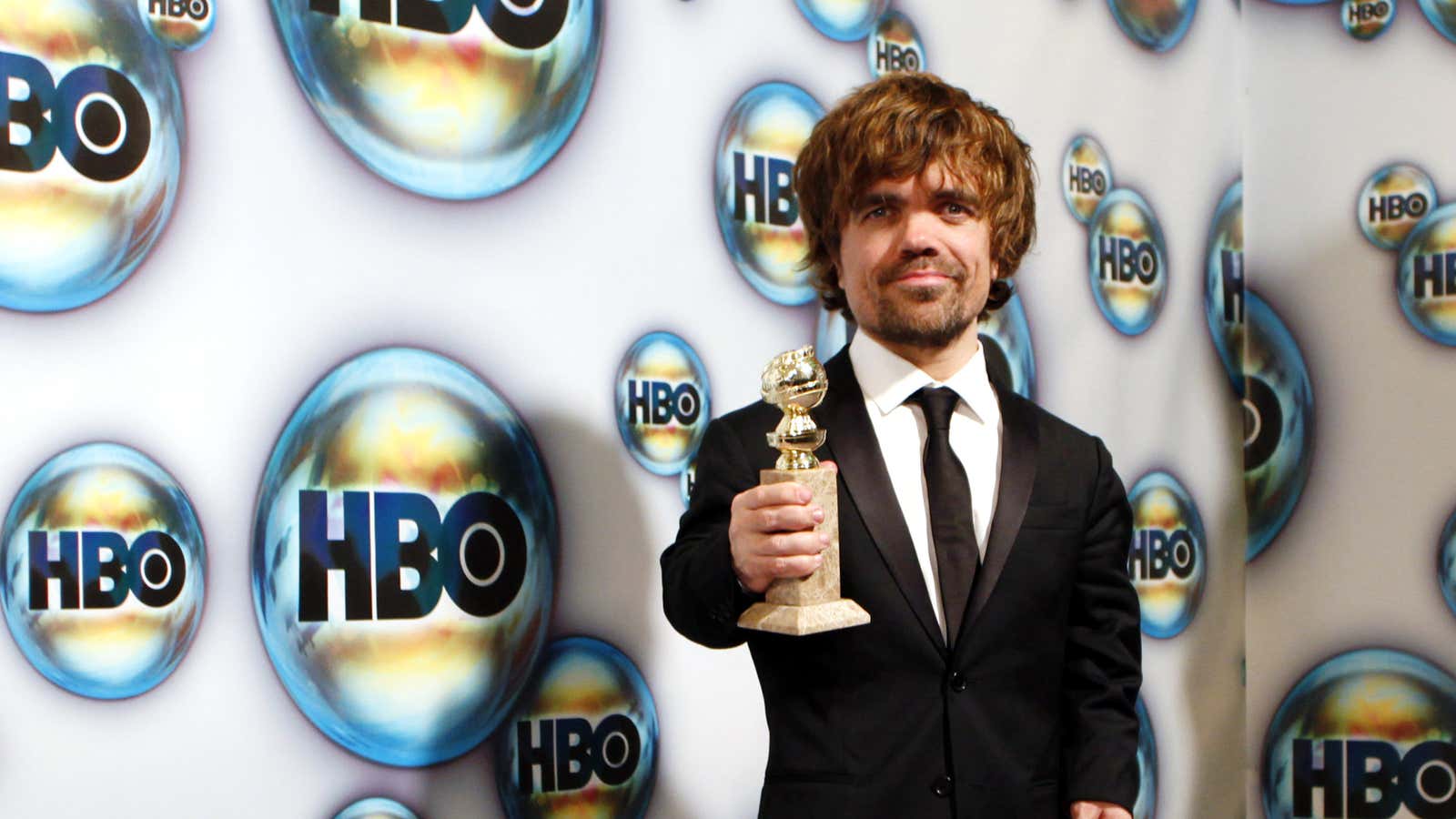One of the biggest conundrums facing a prospective “cord-cutter”—an American seeking to abandon their agonizingly expensive cable TV subscription to consume content only via the internet—isn’t how to survive without 300+ mediocre channels. It’s how to continue accessing HBO. The premium cable channel may have a solution in store, but you wouldn’t know it from the latest spin by its parent company.
The premium cable channel behind must-watch shows like Game of Thrones, Girls, Boardwalk Empire and earlier shows like The Sopranos has an internet streaming product, but it’s virtually impossible to access without a cable subscription, which many consumers are increasingly unwilling to pay for. This frustrates many, so much so that it inspired a high profile internet campaign last year—Take My Money HBO—in which devoted fans tried to get the channel to follow the path of Netflix and Hulu and begin selling subscriptions directly to them (a request the company politely denied).
HBO offered a glimmer of hope last month by quietly trialling a product to new customers in selected US cities with Comcast, America’s biggest cable company: a $50-per-month “internet plus” package combining broadband access, broadcast TV and HBO. That’s much cheaper than the average American’s cable bill, which is estimated to average about $128.
It seemed like a sensible move, considering that last month the number of subscribers to Netflix surpassed subscribers to HBO. There are an estimated 8 to 10 million households in America with internet access but no pay TV, and between 60 and 70 million with pay TV, but without HBO. The new product could allow HBO to penetrate both of these consumer categories. Yet on the Nov. 6 earnings call for its parent company, Time Warner, executives sounded decidedly lukewarm about the potential of the product. ”It’s a new offer. It’s fairly targeted. It’s a pretty limited video offering, not in the sense of HBO which is a fantastic video and broadband offerings. So it won’t be attractive for most people,” Time Warner CEO Jeff Bewkes said.
It’s easy to guess why HBO and Time Warner aren’t playing up the new offering, despite its obvious appeal. HBO doesn’t sell any advertising on its channels; it’s beholden to the affiliate fees it charges cable companies to use its content. Cable companies (including Time Warner Cable, which was spun off from Time Warner in 2009) are willing to pay top dollar for HBO and keep it bundled with their other less profitable channels, since it’s just about the only thing keeping cord-cutters from abandoning ship. As such, HBO likely earns more from cable subscriptions than it could from a competitively priced, standalone streaming product.
As one analyst told Quartz: HBO makes “billions of dollars out of cable TV subscriptions. The entire [cable TV] ecosystem wants this to persist. It’s not just [HBO], its the whole industry.” Sadly for cord-cutting HBO watchers, their desire to move into the future may not be fulfilled anytime soon.
